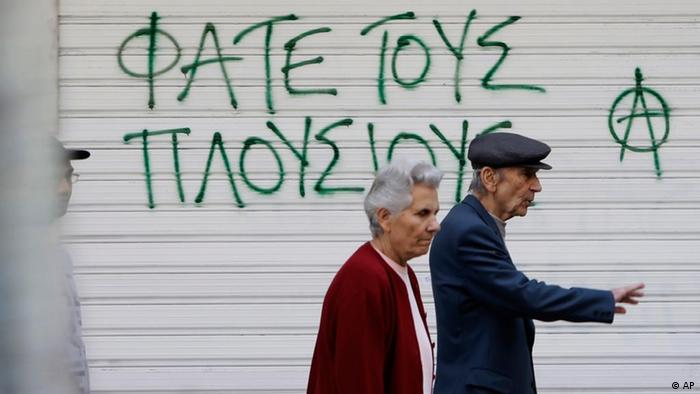Eurogroup chief Jean-Claude Juncker has floated the idea of coordinating the EU's rescue efforts in Greece with a new position in the bloc's executive branch, while Greek unions lead another strike against austerity.
The head of the eurozone's meeting of finance ministers on Wednesday proposed creating a new European commissioner to coordinate efforts to save Greece from economic ruin, as tensions in the country rise over forced budget cuts and reforms.
Luxembourger Prime Minister Jean-Claude Juncker said in an interview published Wednesday by the German daily "Die Welt" that the economic crisis in Greece demanded greater and more constant attention from the EU.

Juncker carefully avoided the sensitive issue of budget control in Greece
"I would be very much in favor of an EU commissioner charged with the task of building up the structure of the Greek economy," Juncker said. "It won't be enough for the finance ministers to deal with this on a monthly basis."
Juncker added that the position would not be a "budget commissioner," carefully avoiding an allusion to a German proposal for an EU bureaucrat to oversee Greece's budget - an idea the government in Athens decried as infringing on its sovereignty. Rather the commissioner would "pool together" all the EU measures aimed at bringing Greece out of its crisis, Juncker said.
EU summit
Meanwhile Greek unions were staging a three-hour work stoppage beginning at noon Wednesday as part of a Europe-wide day of action against austerity measures.
The Greek parliament late Tuesday approved a new round of budget cuts in advance of a EU summit this Thursday, when leaders are to decide whether Greece has done enough to deserve a second bailout. The cuts of 3.2 million euros ($4.3 million) included reductions to civil servant pensions and a drop in the minimum wage.
At the upcoming two-day EU summit in Brussels, heads from 25 member states are expected to sign a deficit treaty in efforts to boost growth. The so-called "fiscal compact," agreed to in January by all EU states except for the United Kingdom and the Czech Republic, limits deficits to 0.5 percent of gross domestic product.
Representatives from the 17-nation eurozone are also to review whether Greece has fulfilled conditions making it eligible for a new bailout of 130 billion euros ($175 billion) approved last week.
Negotiations on a "firewall" to prevent "contagion" of eurozone debt were canceled in light of reservations from Germany to pump yet more cash into debt rescue funds.

Comments